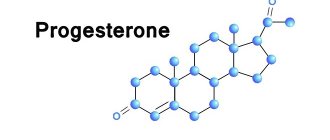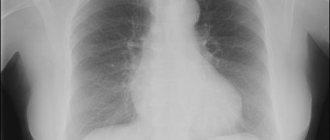The adrenal cortex produces the hormone cortisol, called the stress hormone. This happens in any organism, regardless of gender, age and other factors. The effect of the hormone is to adequately respond to daily stress of varying severity. In addition, cortisol in the blood stimulates the functioning of the heart and blood vessels. When the hormone level is within acceptable values, the risk of inflammatory processes in the body decreases. A sufficient amount of stress hormone has a positive effect on blood pressure and improves carbohydrate and fat metabolism. Therefore, it is especially important to maintain normal cortisol levels in women.
Normal indicators
Cortisol levels do not differ between women and men. It may increase slightly if a woman is pregnant, and its level will increase every month. This is a variant of the norm, since there are no pathological processes in the body, and the growth of the hormone occurs due to an increase in plasma proteins in the blood that bind cortisol molecules.
Cortisol can be measured in mcg/L and nmol/L. Also, the normal indicators may vary somewhat, which depends on the specific laboratory in which the diagnosis is carried out. Specialists must decipher and interpret the data obtained.
Cortisol levels depend on the time of day. So, in the morning its norm is 91-235 µg/l (250-650 Nmol/l), and in the evening the hormone values vary between 18-101 µg/l (50-280 Nmol/l).
The peak of cortisol in the body occurs at 6-8 o'clock in the morning, and it is least in the blood after 20:00 in the evening. These time frames are taken into account when performing the analysis.
Treatment of hypercortisolism
Before reducing cortisol levels with medications, a woman is advised to find out the exact reason for the increase in the concentration of the hormonal substance. Since the organic compound is actively synthesized in stressful situations, it is initially necessary to eliminate the influence of stress and be able to switch attention to pleasant chores.
Compliance with the following rules contributes to a quick recovery:
- Be less nervous;
- Before going to bed, take sedatives based on herbal ingredients - valerian, motherwort;
- Adhere to the correct nutritional regime and diet;
- Drink at least two liters of liquid per day;
- Sleep at least 7 - 8 hours a day.
Cortisol - what is it?
Cortisol can be called the leader among glucocorticoid hormones. Normally, they are always present in the blood. Cortisol binds to blood proteins and takes over about 90% of all hormones produced by the adrenal cortex. About 10% of the remaining hormones float in the blood freely. This cortisol does not take part in any processes; it is simply excreted from the body by the kidneys.
The carrier protein of cortisol in the blood can be albumin or corticosteroid-binding globulin. In addition to the fact that proteins transport cortisol on themselves, they are also their storage site. Once formed in the liver, the carrier protein picks up cortisol and then delivers it to the cells that need it. If cortisol was not needed, it goes to the liver, where it is transformed into water-soluble metabolites. They no longer have the properties of hormones and are excreted from the body by the kidneys.
Cortisol is involved in metabolic processes; it regulates carbohydrate metabolism in the body. It is this hormone that is responsible for the activation of gluconeogenesis, that is, for the formation of glucose from other substances that do not contain carbohydrates, but have energy potential. For example, such substances include: pyruvate, lactate, free amino acids, glycerol.
This property of cortisol helps the body continue to function if it is hungry. Glucose levels do not fall below the limit thanks to this hormone. Cortisol protects a person from stress, which is why it even received a second name: “stress hormone.”
Cortisol is necessary for the body because it performs the following functions:
- Participates in protein metabolism, reducing protein production in cells and stimulating catabolic processes.
- Affects the level of calcium and sodium in the blood.
- Prevents cells from consuming too much sugar, increasing its concentration in the blood. If cortisol levels increase, it can lead to the development of steroid-induced diabetes.
- Promotes the breakdown of fats, increases the level of free fatty acids, which makes it possible to provide the body with sufficient energy.
- Takes part in regulating blood pressure.
- Helps reduce inflammation by stabilizing the membranes of cellular lysosomes, reducing the permeability of the vascular wall and affecting the immune system.
Diet
To regulate cortisol, it is recommended to follow a low-carbohydrate diet. Its essence is identical to the basic rules of healthy eating. There are no strict prohibitions and fasting in it.
The principle of the table is moderate consumption of carbohydrates. They cannot be completely excluded; problems with kidney function, hair, skin and mood may arise. Flour products, fresh baked goods, sugar, and starchy foods are subject to restrictions. The menu less often includes: potatoes, corn, pasta, cereals, bread, soda, etc. When following a diet, you need to consume at least 2 liters of purified water. Nutritionists also advise taking vitamin complexes to balance micro and macroelements.
The frequency of meals is 4-5 times in small portions. Recommended products for a low-carb table:
- grapefruit;
- fresh herbs;
- vegetables fruits;
- lean meats;
- seafood;
- natural yogurt, kefir, yogurt;
- oat bran;
- hard cheeses.
You should exclude fatty, smoked foods, processed foods, and alcohol from your diet. You also need to limit the amount of coffee.
Increased cortisol levels as a response to stress
Any stress factors that affect a person cause his nervous system to send signals to the hypothalamus. It, in turn, increases the production of corticoliberin (CRH), which reaches the pituitary gland through the bloodstream. The pituitary gland, having received a large amount of CRH, begins to produce adrenocorticotropic hormone (ACTH).
ACTH is transported through the bloodstream to the adrenal glands, which, upon receiving it, begin to synthesize cortisol. It also enters the bloodstream and travels to target cells. Most often these are hepatocytes. They contain proteins with which cortisol molecules bind.
The next stage is the launch of complex reactions in the body, during which various genes are activated and the number of special proteins increases. It is these proteins that make up the body’s basic response to an irritating stress factor.
Prevention measures
It is easier to stabilize cortisol levels with the help of preventive measures. Recommendations include:
- adherence to healthy eating rules;
- normal sleep lasting at least 7 hours (before going to bed, it is recommended to ventilate the room and turn down the heating devices);
- daily exercise;
- yoga, meditation;
- trips to nature (harmony with the outside world helps stabilize the psycho-emotional background);
- abstaining from irritation and stress;
- aromatherapy.
By following simple rules, you can learn to control the stress hormone.
Increase and decrease in blood cortisol levels
The following conditions can lead to increased cortisol levels:
- Itsenko-Cushing syndrome and disease.
- Tumor formations of the adrenal cortex.
- Stressful situations that occur in people suffering from a serious illness.
- Mental disorders.
- Acute infections.
- The presence of a malignant cancer in which endocrine cells enter the thymus, lungs or pancreas.
- Diabetes mellitus of uncompensated type.
- Coma and clinical death.
- Taking hormonal drugs: corticosteroids, estrogens. Taking amphetamine.
- Asthma.
- Shock of any nature.
- Severe liver and kidney diseases.
- Acute alcohol poisoning, which develops in people who do not suffer from alcoholism.
- Long-term smoking.
- Obesity.
- Increased emotional background.
- Taking hormonal medications to prevent unwanted pregnancy over a long period of time.
- The period of bearing a child.
If the level of cortisol in the blood is always elevated, even if the cause is not any disease, then this will lead to a negative effect on the body. The following changes occur in it:
- Decreased mental abilities, as the nervous system suffers first of all.
- Disturbances in the functioning of the thyroid gland.
- An increase in blood pressure, which increases the likelihood of a hypertensive crisis.
- Increased appetite, which can lead to obesity.
- Male pattern hair growth in women. The physique changes, a person gains fat deposits in certain places. This type of obesity is called android.
- There are difficulties falling asleep.
- The likelihood of developing strokes and heart attacks increases.
- Immunity decreases, which causes the development of various diseases.
If a person experiences these symptoms, he should consult a doctor and get tested to determine the level of cortisol in the blood.
Reducing cortisol levels in the body also does not happen on its own. There are reasons for this:
- Adrenal insufficiency of the primary type. Addison's disease, which has multiple causes, can lead to a decrease in cortisol levels. At the same time, the body does not produce cortisol in the required quantity due to the failure of the adrenal glands.
- Disturbances in the functioning of the pituitary gland.
- A lack of hormones that the thyroid gland should produce, which leads to a decrease in the level of cortisol in the blood.
- Taking hormonal therapy for a long time.
- Deficiency of enzymes that are directly involved in the synthesis of cortisol, for example, 21-hydroxylase.
- Bronchial asthma.
- Liver damage: hepatitis or cirrhosis.
- Treatment with Levadopa, Danazol, Morphine, Trilostane and some other drugs.
- Gout.
Symptoms of decreased cortisol levels in the body are difficult to miss. The person will constantly experience fatigue, his muscles will become weak. The functioning of the digestive system organs is disrupted, the skin acquires a bronze color. The limbs tremble, the heartbeat quickens, and the volume of blood circulating throughout the body decreases.
Itsenko-Cushing syndrome
/detailed clinical symptom complex of hypercortisolism in women/
1. Frequent headache.
2. Muscle weakness with wasting/atrophy of large muscles of the shoulder girdle and limbs (thinning of the arms and legs).
3. Severe dysplastic steroid obesity: moon-shaped, hyperemic face; deposition of fat on the body, on the back of the neck in the form of a hump/bump.
4. Purple-bluish skin rashes in the form of bruises, red stretch marks, hernial protrusions along the white line of the abdomen/sagging abdomen (the result of connective tissue hypotrophy).
5. Persistent arterial hypertension, resistant to antihypertensive drugs.
6. Atherosclerosis.
7. Myocardial dystrophy with congestive circulatory failure, edema.
8. Diffuse osteoporosis with pain, pathological bone fractures, compression fractures of the spine. Nephrolithiasis due to hypercalcemia.
9. Hirsutism (abnormal hair growth on the face and chest).
10. Menstrual irregularities (dysmenorrhea followed by amenorrhea), infertility.
11. Signs of steroid diabetes mellitus with polyuria, thirst.
12. Decreased immunity/secondary immunodeficiency: development of pustular infections, acne; exacerbation of chronic/latent infections; decreased body resistance.
13. Decreased memory and intelligence, sleep disorder, dysphoria, depression, less often steroid psychosis, seizures.
Donating blood to test cortisol levels
The cortisol test requires some preparation from the patient. It is important to decide on the time of the procedure, since the level of the hormone in the blood depends on this. It is taken from a vein.
Preparatory activities for the study should begin 3 days before it is carried out:
- 3 days before the procedure you need to limit your salt intake. Its daily level of 3 g should not be allowed to be exceeded.
- 2 days before the test, you should stop using medications that can affect the level of cortisol in the blood. If this is not possible, then you should notify your doctor.
- Avoid eating 10-12 hours before the procedure.
- Physical activity should be avoided 10 hours before the test.
- 30 minutes before donating blood, a person should try to relax as much as possible.
To obtain results that will reflect the actual level of cortisol in the blood, blood sampling should be carried out between 6-9 am.
Consequences
The health consequences of releasing a high amount of this hormone can be:
- a negative effect on every cognitive function in the central nervous system (attention, memory, language, visual-spatial perception);
- manic-depressive psychosis (bipolar disorder);
- ADHD;
- anorexia;
- bulimia;
- high levels of cortisol kill a significant number of brain cells, literally stimulating them to death;
- dementia;
- alcoholism;
- borderline personality disorder (emotionally unstable personality disorder)
- will reduce the production of new cells in the brain by reducing the production of brain-derived neurotrophic factor (BDNF), a protein that is a stimulator in the formation of new cells in the brain.
Determining the level of cortisol in urine
To determine the level of cortisol in the body, you will need to donate not only blood, but also urine.
In urine, the level of the hormone can increase with Itsenko-Cushing syndrome, against the background of mental disorders and when the body is in a state of stress. In addition, an increase in the hormone in the urine occurs against the background of hypoglycemia, obesity, inflammation of the pancreas, alcoholism, and hirsutism. Recent injuries or previous operations may affect the results of the analysis.
If the level of cortisol in the urine is reduced, this may be a consequence of adrenal insufficiency in Addison's disease, or be caused by cancer, autoimmune diseases, or taking hydrocortisone.
The level of free cortisol is determined in daily urine. However, when interpreting the data obtained, it is necessary to take into account the fact that even intense exercise and excess body weight can lead to an increase in cortisol levels in the blood. That is, an increase in the hormone in the urine is not always a consequence of any disease.
Medications
Sometimes it is difficult to bring cortisol levels within normal limits. In this case, an integrated approach is used, including:
- physical activity;
- low carbohydrate diet;
- taking special medications.
Among the drugs used to regulate the hormone, the following pharmacological products stand out.
Metyrapone
The drug is used in the treatment of ectopic ACTH production syndrome, hyperplasia, and adrenal tumors. The active substances reduce cortisol, which allows you to bring the levels back to normal. The product is also used as a diagnostic test. There is experience in combining Metyrapone with surgical or radiation treatment.
When prescribing a medicine, the characteristics of the patient’s body are taken into account. This precaution is due to possible adverse reactions. They manifest themselves in the form of water and salt retention. The risk of developing hirsutism also increases.
Metyrapone is used primarily to determine adrenal function.
Ketoconazole
To normalize cortisol levels, the drug is prescribed in tablet form. Used primarily by athletes to support and build muscle mass. The active substance quickly deals with excess hormone, but this increases the risk of adverse reactions. They make themselves known in the form of nausea, headaches, pain in the abdominal area.
The main purpose of the drug is to fight fungi. Average cost – 195 rubles.
Are mental illnesses the work of hormones?
An in-depth study of cortisol in children has allowed scientists to discover a mechanism that deprives parents of peace after many years. Depression, paranoia, aggression, tantrums in adolescents and young adults are all disorders that can be associated with “abnormal” cortisol levels, which, in turn, are often the result of traumatic experiences in the early years of life. In order to cope with constantly elevated levels of cortisol, the body begins to “protect itself” - limit the mechanism of its secretion even in stressful situations. As a result, we have children who constantly have some kind of problem at school: they break the rules, they are often punished, etc. and so on. In most cases, no adult thinks that stress hormones may play a role in this. Meanwhile, the absence of cortisol reactions to negative stimuli is, from the point of view of human physiology, a serious problem in everyday life. Newly published scientific research shows that chronic stress in children appears to influence the activation of genes associated with the development of serious mental illnesses, including schizophrenia. In particular, this is why in families burdened with mental problems, sources of regular stress, fear, and uncertainty are extremely dangerous for the children living in them.











